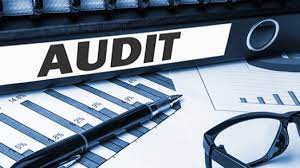The Multifaceted Role of Internal Audit: Ensuring Organizational Integrity and Efficiency
In today’s complex business environment, the internal audit function plays a critical role in ensuring the integrity, efficiency, and compliance of an organization. This article delves into the various dimensions of internal audit assignments, encompassing value for money, information technology (IT), financial, regulatory compliance, fraud investigations, and customer experience. Each of these aspects represents a unique facet of internal audit, contributing collectively to the organization’s strategic objectives and operational excellence.
Value for Money Audits: Maximizing Organizational Efficiency
Value for money (VFM) audits are essential in determining whether an organization utilizes its resources effectively, efficiently, and economically. These audits assess three core elements: economy (cost minimization), efficiency (optimal resource use), and effectiveness (achievement of objectives). VFM audits go beyond financial measures, examining the qualitative aspects of organizational performance. They are instrumental in identifying areas of wastage, suggesting improvements, and ensuring that resources are used to derive maximum benefit for stakeholders.
IT Audits: Safeguarding Digital Assets
In the digital age, IT audits are crucial for the security, integrity, and availability of information systems. These audits evaluate the systems’ internal controls, data management, and compliance with IT policies and regulations. With the increasing threat of cyber attacks, IT audits help in identifying vulnerabilities and ensuring that the organization’s digital assets are protected. They also play a pivotal role in evaluating the effectiveness of IT governance, risk management practices, and technology infrastructure.
Financial Audits: Ensuring Accuracy and Compliance
Financial audits are perhaps the most well-known aspect of internal auditing. They involve an examination of the organization’s financial statements and related operations to ensure accuracy, reliability, and adherence to accounting standards. These audits help in detecting errors, fraud, and misstatements, thereby enhancing the credibility of financial reports. Through a thorough examination of financial processes and controls, internal auditors assist in maintaining fiscal discipline and transparency.
Regulatory Compliance Audits: Navigating the Legal Landscape
Regulatory compliance audits focus on ensuring that the organization adheres to laws, regulations, and policies. In a rapidly changing legal environment, these audits are vital in avoiding legal risks and penalties. Compliance audits assess the effectiveness of the organization’s internal policies and procedures in meeting external legal and regulatory requirements. By identifying compliance gaps, internal auditors help organizations in rectifying issues and maintaining a good standing with regulatory bodies.
Fraud Investigations: Protecting Organizational Assets
Fraud investigations are a critical component of internal audit assignments. These investigations are initiated when there is a suspicion or evidence of fraud, embezzlement, or unethical conduct within the organization. Internal auditors play a detective role, employing forensic auditing techniques to uncover malpractices and gather evidence. Their findings are vital in taking corrective actions and implementing measures to prevent future occurrences of fraud.
Customer Experience Audits: Enhancing Service Quality
In an increasingly customer-centric business world, auditing customer experience has become paramount. These audits assess how effectively the organization delivers on its customer service promises and identifies areas for improvement. By evaluating the end-to-end customer journey, including interactions and satisfaction levels, internal auditors provide insights into customer expectations and perceptions. Enhancing customer experience can lead to increased loyalty, better market reputation, and ultimately, improved financial performance.
Conclusion
The internal audit function, with its diverse scope encompassing VFM, IT, financial, regulatory compliance, fraud investigations, and customer experience audits, plays a pivotal role in an organization’s governance framework. It offers a comprehensive check on the organization’s operational efficiency, legal compliance, financial integrity, technological safeguarding, fraud prevention, and customer satisfaction. By continuously adapting to the evolving business landscape, internal audit ensures that organizations remain on a path of sustainable growth and value creation for all stakeholders.
